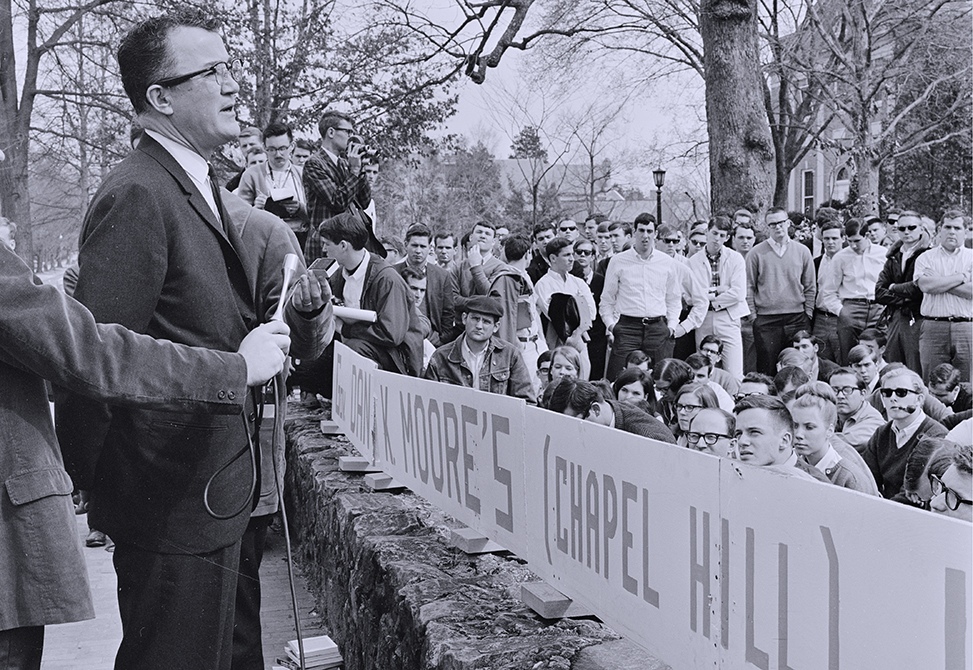Speaker Ban Law
In 1963 the North Carolina General Assembly passed the Act to Regulate Visiting Speakers, which prohibited from speaking at a state-supported college campus anyone who was a known member of the Communist Party, had advocated the overthrow of the state or federal constitution, or had ever invoked the Fifth Amendment before any judicial tribunal with respect to subversive activities. Passed without warning in the last hours of the legislative session in June, the bill seemed to be about anticommunism but was in fact a sharp rebuke to student activists for their participation racial integration and civil rights protests. It quickly became known as the Speaker Ban Law, and administrators, faculty, and students organized to oppose it.
Administrators and trustees worked within the system to challenge it. This resulted in a compromise in 1965, in which the General Assembly amended the law to give college boards of trustees power over the approval of campus speakers. This occurred primarily because the Southern Association of Colleges and Schools declared that the Speaker Ban Law, a violation of academic freedom and free speech, threatened university accreditation.
Students undertook a series of protests, which coalesced with the election of student body president Paul Dickson III (UNC—Chapel Hill class of 1966), who won election on a platform of defense of free speech. In March 1966 Dickson and other student leaders invited Frank Wilkinson (who had invoked the Fifth Amendment before a congressional committee) and Herbert Aptheker (a Communist) to appear on campus. Prevented from speaking by Chancellor J. Carlyle Sitterson, both of them spoke from the sidewalk on the town side of the stone wall on McCorkle Place. Wilkinson and Aptheker's appearances formed the basis for a lawsuit brought by the student leaders, Dickson v. Sitterson, which overturned the law in 1968.
In 2011, encouraged by former UNC System president William C. Friday, the university installed a plaque on one of the stone walls commemorating the students who advocated for the repeal of the Speaker Ban Law.
Date Established: 1963
Date Range: 1963 – 1968

Frank Wilkinson (left) speaks to UNC students gathered on Franklin Street. Photo by Charles Cooper. Durham Herald Co. Newspaper Photograph Collection, North Carolina Collection Photo Archives, Wilson Library.

